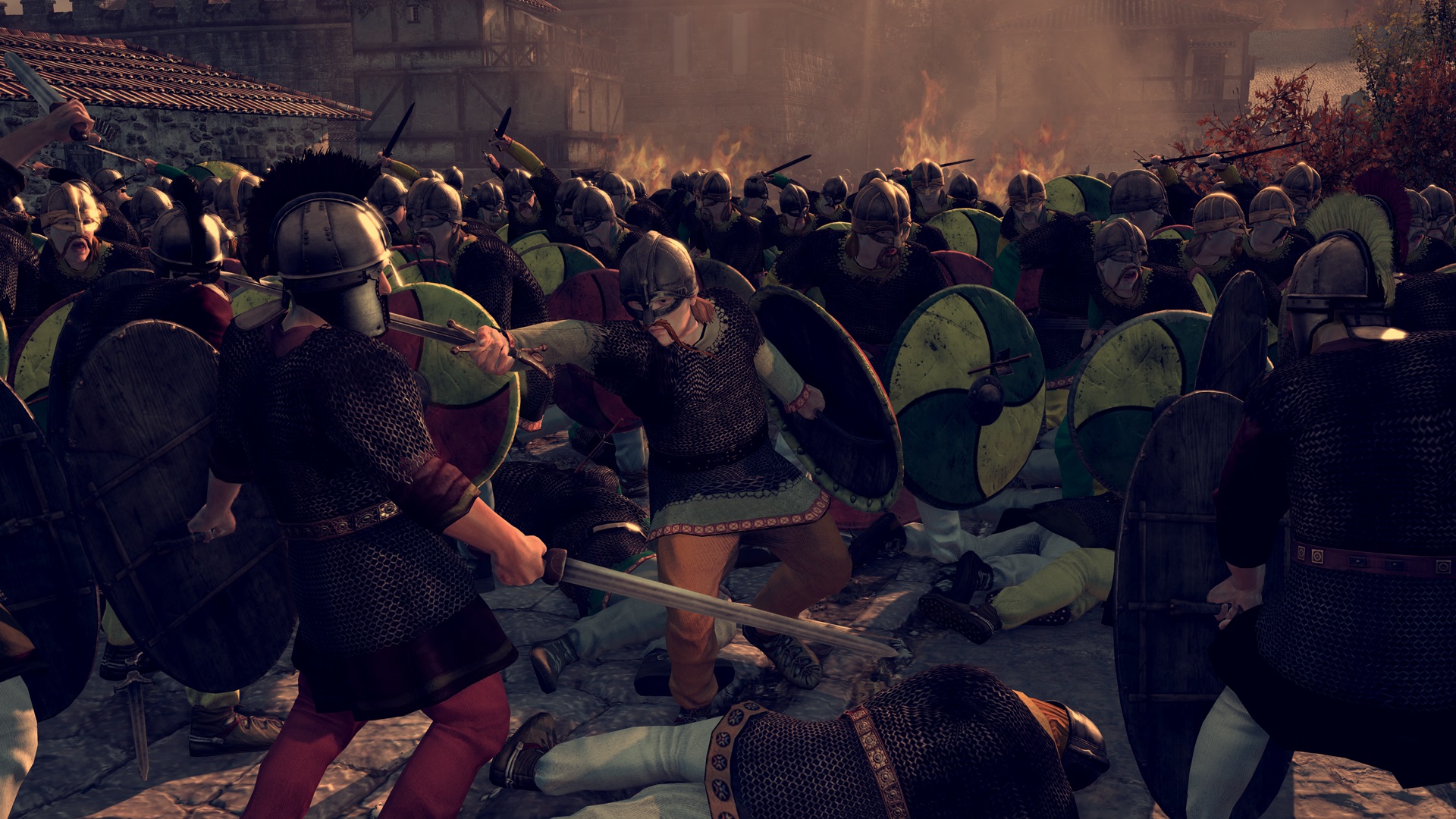When I envision Attila and his Hunnic hordes, a very specific set of images are conjured. Towns and cities being pillaged and burned. Arguments over a flagon of booze quickly escalating to all-out brawls and, occasionally, decapitation. Post-battle parties flowing deep into the night with all sorts of debauchery on display. The course the Hun overlord and his homies took through history is part and parcel with a sort of uncaring, caution-to-the-wind attitude, which is why there’s a slight irony that the first word that comes to mind when playing Total War: Attila is “safe”.
Let me get something out of the way first. After the debacle surrounding Creative Assembly’s last outing, Total War: Rome 2, “safe” is exactly the attitude the developers needed to adopt going into their next game. In fact, it’s quite likely that, prior to Attila’s development, quite a few meetings involved little more than the shaking of heads, shrugging of shoulders, and viewing of encouraging puppy videos. Months and months of patching schizophrenic AI, network code, and a veritable mountain of other miscellaneous bugs will do things to a programmer. Horrible things.

Set during the beginning (if you could pinpoint it) of the fall of the Roman Empire, TW:A does not tread a great deal of new ground beyond that claimed by its predecessor. Aside from an updated political and social climate, the campaign map hardly differs from that of Rome 2. The main difference is, as expected, the introduction of the hordes, whose unique mechanics mark the largest divergence Attila has to offer. Around half of the starting nations in Attila adopt this form, meaning that they typically begin without a city to call their own. Instead, their armies become roving campsites that are able to set up shop at any location on the campaign map to create buildings, recruit new units, and generally take on the role of a regular, static city. If, at any point, the player grows tired of their location, they can simply order their citizens to pack everything up and wander elsewhere.
In the event that a horde’s reign of terror results in them capturing a city (as opposed to razing it and putting up a sign that says “Romans suck, cow blood for lyfe”), they immediately lose this ability and transform into a standard static nation. Warrior nations feeling a bit cooped up are able to revert to their original ways by simply losing control (of their own accord, if they desire) of their last city.
